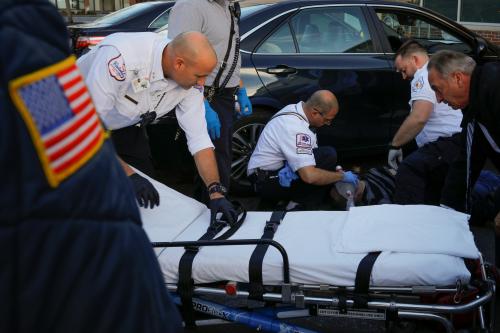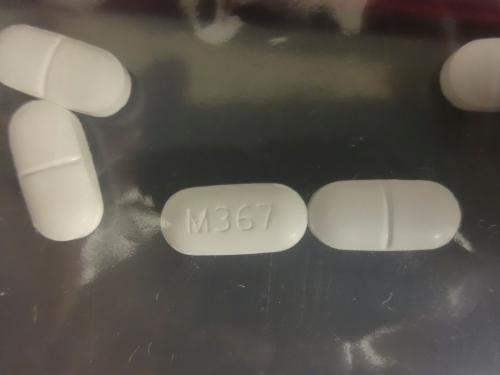This paper comes from the paper series “The opioid crisis in America: Domestic and international dimensions.”
Executive summary
This paper explores policy options for responding to the supply of heroin and synthetic opioids from Mexico to the United States.
Forced eradication of opium poppy has been the dominant response to illicit crop cultivation in Mexico for decades. Forced eradication appears to deliver fast results in suppressing poppy cultivation, but the suppression is not sustainable even in the short term. Farmers find a variety of ways to adapt and replant after eradication. Moreover, eradication undermines public safety and rule of law efforts in Mexico, both of high interest to the United States. Instead of strengthening bonds between local populations and the Mexican state, forced eradication alienates local marginalized populations from the state and thrusts them more firmly into the hands of Mexican drug trafficking organizations (DTOs).
Alternative livelihood efforts have the best chance to improve public safety and rule of law in Mexico, even if, like eradication, they displace poppy cultivation to other areas. However, the implementation and effectiveness of alternative livelihood programs are severely hampered by intense insecurity in areas of poppy cultivation and take years of sustained efforts to produce robust outcomes. Nonetheless, the re-orientation of Mexican DTOs toward smuggling fentanyl to the United States and the associated crash in opium prices in Mexico provide an auspicious moment to launch comprehensive rural development efforts, an undertaking also consistent with the broad thrust of the Andrés Manuel López Obrador (popularly known as AMLO) administration’s efforts, even if not the actual operationalized design of alternative livelihoods it has in mind. U.S. designation of Mexican DTOs as terrorist groups will counterproductively constrain U.S. anti-crime and counternarcotics efforts in Mexico, including alternative livelihood programs.
Unless security and rule of law in Mexico significantly improve, the licensing of opium poppy in Mexico for medical purposes is unlikely to reduce the supply of heroin to the United States. Mexico faces multiple feasibility obstacles for getting international approval for licensing its poppy cultivation for medical purposes, including, currently, the inability to prevent opium diversion to illegal supply and lack of existing demand for its medical opioids. In seeking to establish such demand, Mexico should avoid setting off its own version of medical opioid addiction.
The diffusion of fentanyl smuggling from the Cartel Jalisco Nueva Generación (CJNG) to the Sinaloa Cartel and increasingly smaller Mexican criminal groups complicates interdiction efforts in Mexico. In particular, it hampers the ability to design interdiction as a behavior-shaping deterrence tool that seeks to dissuade Mexican DTOs from smuggling fentanyl, instead of merely as an incapacitation tool that fails to generate strategic effects throughout Mexico’s criminal market. Given the poor record of focused deterrence efforts in Mexico, the hollowed out capacity of Mexican law enforcement, changes in the leadership and behavior of the Sinaloa Cartel, and the unwillingness of the López Obrador administration to resolutely target Mexican DTOs, designing interdiction in Mexico as a deterrence and dissuasion tool is most challenging. It is very unlikely that U.S.-Mexican counternarcotics efforts can reshape the Mexican drug market so as not to centrally feature fentanyl smuggling.
The United States should:
- Prioritize interdiction and alternative livelihood efforts to limit and replace poppy cultivation, concentrating on the establishment of value-added chains and microcredit and titling facilities until security becomes more permissive to allow for development of jobs in the legal sector.
- Focus anti-fentanyl interdiction on preventing a widespread establishment of production facilities in Mexico by diligently dismantling them.
- Couple policy interdiction efforts in Mexico designed to dissuade Mexican DTOs from smuggling synthetic opioids with similar focused deterrence measures in the United States.
- Reduce high-value targeting and reorient interdiction to targeting the middle layer of Mexican DTOs.
- Encourage Mexico to impose strict controls on the purchase of pill presses.
- Prioritize anti-corruption and interdiction efforts in maritime ports in Mexico that are key transshipment hubs for synthetic opioids and precursor agents.
- Preemptively develop anti-drone technologies at the U.S. border that can capture fentanyl-smuggling drones, instead of dangerously destroying them in the air, and deploy geofencing to prevent unauthorized drones from reaching U.S. air space.
- Link refraining from designating Mexican DTOs as terrorist groups to increased efforts by the López Obrador administration to counter fentanyl smuggling.
- Emphasize the risks of the spread of fentanyl abuse in Mexico and the need to prevent such a public health crisis by proactively disrupting supply. Help Mexico adopt effective treatment, harm reduction, and public health responses.






